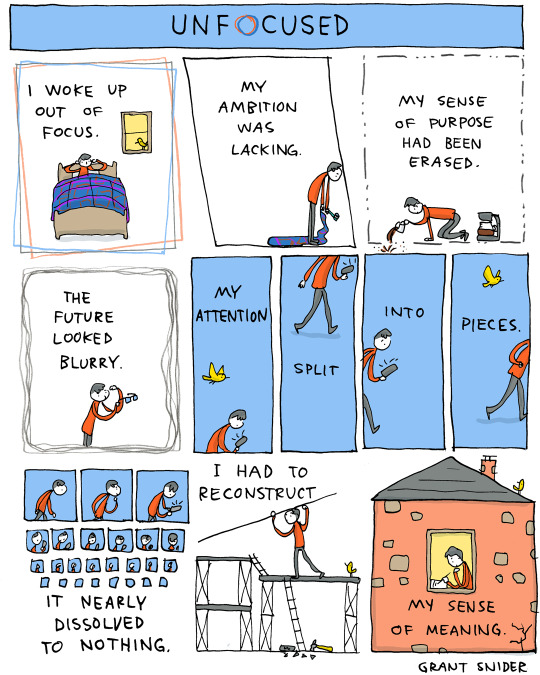#nihilsm
Text
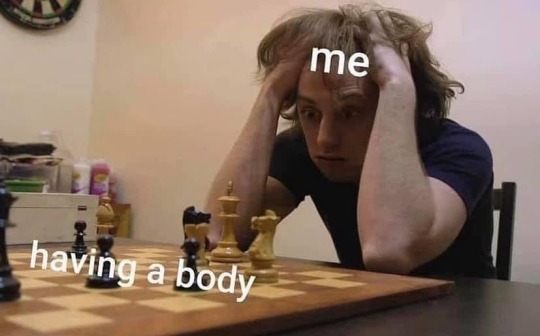
#memes#relatable memes#meme#mood#relatable#relatable meme#existential crisis#existential thoughts#vibe#depression#how i’m feeling now#nihilist memes#nihilsm#nihilism memes#existential depression
754 notes
·
View notes
Text
"You,” he said, "are a terribly real thing in a terribly false world, and that, I believe, is why you are in so much pain."
Emilie Autumn, The Asylum for Wayward Victorian Girls
#dps#poetry#dead poets society#literature#quotes#philosophy#nihilsm#dark academia#write#books#writer#emilie autumn#the asylum for wayward victorian girls
911 notes
·
View notes
Text
From Lexi Drumonde's video on Hopepunk.

#hopepunk#hope punk#solar punk#solarpunk#futurism#misinformation#clean energy#renewable energy#nihilsm#nihilizm#climate and environment#climate hope#climate action#climate doom#doomerism
144 notes
·
View notes
Text
why do so many people act like there needs to be a great purpose behind our existence? or there is some grand reason why I am here. No, acknowledging the realness of Nihilism doesn't always have to make one super pessimistic. There is almost 200 billion trillion stars in this universe. If you consider the bigger picture it won't make a difference if our sun with it's whole solar system just disappears tomorrow. On a large scale, things are devoid of meaning and purpose SO WHAT? whether its truly meaningless or not, if I disappear today I won't be able to enjoy another sunset, pet another cute street cat, won't get to hang out with my favorite people anymore, won't be able read another interesting book or try a new noodles recipe or travel to a new place and I won't be able to learn so many other things I want to learn -- and these things are more than enough to inspire me to keep on living. I don't really care about the meaning of life or purpose of our existence anymore.
“You will never live if you are looking for the meaning of life. Fall in love with some activity and do it! Nobody ever figures out what life is all about and it doesn't matter. Explore the world. Nearly everything is really interesting if you go into it deeply enough."
-- Richard Feynman
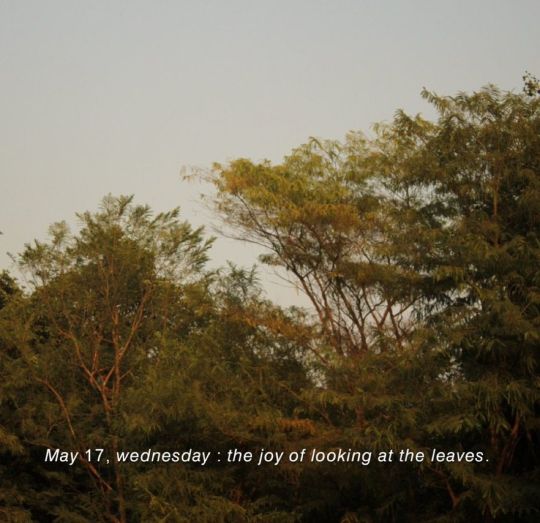


#richard feynman#quotes#philosophy#psychology#nihilsm#absurdism#thoughts#doesn't matter#why so serious#physics#life#life purpose
27 notes
·
View notes
Text
"I believe I will never be forgotten cause I will never be remembered."
I read that somewhere and I reckon that's the simplest reason and explanation to be yourself. Sometimes we take ourselves too seriously we like to imagine everyone is watching us, and somehow every opinion they form about us becomes relevant to us when it isn't. They are caught up in their own troubles just like we all are. Almost nobody cares about you so do what you love.
(「`・ω・)「
15 notes
·
View notes
Text

nihilism Rule
(artist seems to be u/BDRCN)
40 notes
·
View notes
Text
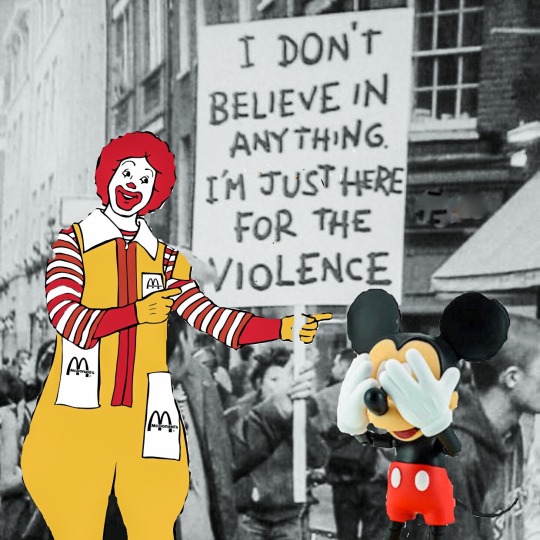
#late stage capitalism#aesthetic#vintage#protest#nihilsm#violence#mickey mouse#ronald mcdonald#nefarious
13 notes
·
View notes
Text



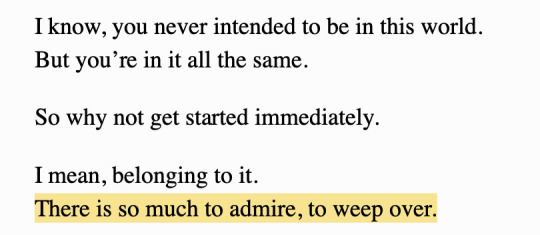



#moodboard#thoughts on god#personal#🗝️#poetry#nihilsm#existensialism#comfort#nature#hummingbird#flowers#blooming
42 notes
·
View notes
Text

Sorry bro
67 notes
·
View notes
Text
I hate the genre of post that is essentially
"Life is meaningless the universe is cruel, cold and uncaring and we are cosmically insignificant."
That is then followed up by
"Ummm actually we have find our own meaning in our lives and make the universe good, I am fundamentally agreeing with your previous point, not actually refuting your nihilism, and making anyone that hasn't found meaning, love or happiness on their own personally responsible for their misery."
No, God gave meaning to the world through his love and wishes to be happy by being fully united with him. Man cannot achieve lasting happiness on his own he needs God, not nihilism disguised as optimism.
#nihilsm#optimism#Love#God#Christian#Christianity#Catholic#God created everything with purpose love and goodness#He loves knows desires forgives and sustains you
24 notes
·
View notes
Text
The Meaning of Christmas--An Essay About Christmas Movies, Nihilism, and Life
It seems like finding “the meaning of Christmas” has become such an integral part of every Christmas story and Christmas experience, that one could say that “finding the meaning of Christmas” has become part of the meaning of Christmas. In this way, many Christmas movies and stories act as allegories for life as a whole; a microcosm for humanity’s more general search for meaning in a universe seemingly devoid of it.
On the one hand, we have characters like the Grinch or Ebenezer Scrooge who represent a nihilistic view of reality. Life possesses no inherent meaning, so there is no reason not to pursue selfish gain or wallow in misanthropy. Certainly, the cruelty of the world and more specifically humanity (or Whomanity) makes this conclusion easy to come to, attractive even. In the modern era especially, it is easy to become disillusioned with the merry image of holidays past when we are bombarded by the hyper-commercialized, over-stimulating hellscape that is late-stage capitalism; abuses of the imperialist and colonial eras of the recent and not so recent pasts makes a uniform rejection of any and all aspects of western culture even more attractive, leading to more people pointing to the inherent hypocrisy of the Christian imagery and coopted pagan rituals combined with one another and awkwardly juxtaposed with blatant profit-seeking.
And yet…
Whether it is called Christmas, or Yule, or Hanukkah, or Kwanza, or any one of several dozen other terms, we still are captivated by the mid-winter celebration. The time of the year when no crops are grown, when the world seems its most dead and cold, is when we choose to—for whatever cultural reason we desire or believe—come together and choose to celebrate and partake of arguably the most human part of our collective experience: community.
From a strictly anthropological perspective, humans’ ability to work together and operate as a collective unit has been the most effective evolutionary trait we ever developed. Yes, we have our oversized brains to thank for developing tool use and other survival strategies, but none of these things would be nearly as effective without cooperation and complex social organization. Our ability to socialize with one another is, in my opinion at least, the most important factor that makes us human. Is it any wonder, then, that we choose to celebrate this aspect of our species at the time of year when it is most crucial that we remember it? In Darwinian terms, any activity which promote social cooperation at a time when resources are scarce and such cooperation is vital would confer an enormous survival advantage for the societies that engaged in it, and thus be selected for.
But somehow, we can all sense that there’s more to it than that. More than just the simple calculus of evolutionary survival.
Humanity’s search for meaning is as old as Humanity itself. Ever since we became able to abstractly reason, we began to question our reality. Why are we here? Is there any reason for all this? Why is there something rather than nothing?
Why do we suffer?
Why are we so cruel to each other? Why is the universe so cold and cruel, so unfeeling?
We invented and hypothesized many answers to these questions over the millennia, from creation myths to scientific theories, cosmograms to cosmological models. We invented culture and art and dance and music and so many other ways to make our lives brighter. In our darkest moments, we know, thought we are loathe to admit it, that we invented these things to distract ourselves from a deeply Uncomfortable Truth: that nothing matters; there is no meaning to all of this; it’s all random.
People, especially in our modern era which prizes cold reason and rationality, often get lost within this Uncomfortable Truth. We become desponded, depressed. We become angry, misanthropic, hostile. There is no meaning to our suffering, so we seek anything to alleviate our pain. In this situation, many choose to placate themselves by pandering to their Ego: pretending that they are superior to all those who profess belief in the meaning of life and Christmas. There is no God, there is no meaning. Wake up and smell the shit, we’re all living in it; you should grow up and accept the meaninglessness of your life! Bah! Humbug!
And yet…
In November of the year 2000, a live action adaptation of the famed Dr. Seuss book How the Grinch Stole Christmas, starring Jim Carrey, was released in theaters. This movie expanded on the lore of past adaptations by showing that the Grinch’s misanthropy was only partly due to his inherent cussedness—he was bullied in a traumatic even that destroyed even his atrophied sense of faith in the meaning of Christmas/Life. He spent the next few decades living apart from society and cultivating his hatred for the community that had rejected him. The Whos certainly were to blame for traumatizing and ostracizing the Grinch, but reality is a relationship between subjects and objects, and the Grinch also chose to reject all aspects of the society that rejected him, even to his own long-term detriment.
We see that the Grinch, despite his obvious intellect, physical strength, and inventiveness, is clearly suffering from his isolation, despite his own self-deception to the contrary. He still defines himself in reference to the society he hates, as excluded from it; even in his misanthropy, he cannot fully disengage from the community. The community has a responsibility to face up to its mistreatment of the Grinch, but the Grinch must also face up to his misunderstanding of the nature of community.
We see that the Grinch is capable of understanding this—when he is given the community’s highest award and given a place of honor in their celebrations, he gradually begins to embrace celebration, becoming more enthusiastic as the night goes on, and the community celebrates with him…right up until things go wrong.
Here we must talk briefly about someone else—the mayor.
The mayor is a lot more like the Grinch than is immediately obvious. He is misanthropic and selfish, as we see in his childhood when he bullies the Grinch. Like the Grinch, he true as recognized the Uncomfortable Truth of the meaninglessness of life, but where the Grinch chose to retreat from society and hate what he perceived as the falseness of it, the mayor chose to embrace the illusion and manipulate it for his own gain. He is just as nihilistic as the Grinch: he doesn’t believe in community, only in materialism.
When the mayor triggers the Grinch by reminding him of his past traumas, he is intentionally reminding the Grinch about the Uncomfortable Truth. “You don’t matter,” he is saying without words. “None of this matters. It’s all about the gifts, and I have more than you, so I’m better than you.” It is this which prompts the Grinch’s later actions; his attempt to spite the society he hates by destroying and stealing their material possessions, which in his view is all that matters. He is trying to rip aside the veil of illusion and reveal to the Whos that their society is an ugly lie.
But in so doing, he inadvertently gives them the greatest gift of all. By stripping away the illusion that is materialism, he reveals what they have left: each other.
Neither the Grinch nor the mayor can understand this. They run headlong into the Second Uncomfortable Truth: that the illusion is reality. Because if Nothing Matters, then Everything does.
And it destroys them.
The mayor is devastated by the loss of his material possessions, by the loss of his control over the community, and the Grinch is shocked and bamboozled by his inability to destroy the faith of the Whos in their society. The difference between them lies in how they react. The mayor refuses to let go of his Ego. He has built a shell of materialism and pride to protect himself from hurt, and he scrabbles at what few fragments remain when the illusion is stripped away, desperately rejecting the Second Truth. But the Grinch does something different, and this is critical; this is the lesson that we must take.
He entertains the notion that he was wrong.
Just for a moment, but a moment is all it takes. He opened the window, a tiny crack in his protective shell of materialism and hate. And the bright, hot, searing light of the Second Truth strips him of his defense mechanisms and lays his soul bare before the light of the rising sun.
Awakening is a painful process, even physically so, and this was true of the Grinch. He is physically in agony by the process and cries out that he is dying. He is dying. His Ego, the carefully crafted façade of identity that he painstakingly cobbled together over the years just like the junk machinery in his lair was being burned away by the Truth, leaving him raw and feeling everything he never let himself feel before. The Ego struggles to preserve itself, but the process once started cannot be stopped, and the Ego must die for him to grow into the being he was always meant to be.
The process that Ebeneezer Scrooge went through was slightly different from that of the Grinch, but only in the details, and was no less intense for it.
Scrooge’s wounding by society was a more gradual one. As he grew older, he was worn down by the aggressively mercenary attitude of 19th century London, such that he became bitter and miserly. The childlike wonder of his youth was eroded until all that was left of him was a hollow shell, his material wealth and possessions becoming the only things he valued in the world. Unlike the Grinch though, Ebeneezer does have other people in his life, his nephew Fred and his employee Bob Cratchit. It is these two, and a pair of gentlemen seeking charity donations, that serve to highlight Scrooge’s attitude towards the world and his view on the material world. He mocks his nephew for celebrating instead of seeking wealth, castigates Cratchit for asking for a day off, and rants to the charity seekers about the uselessness of the poor using language that could be construed as genocidal.
Yet all of these people presenting opposition to Scrooge’s worldview are necessary for planting the seed of his transformation. Their words echo through his mind and shake the foundations of his protective shell of Ego. But their words would not have had such an effect if it weren’t for the initial catalyst for Scrooge’s transformation, the death of his business partner Jacob Marley.
Marley had died seven years before the events of the story, and while Ebeneezer Scrooge seems outwardly unaffected, it later becomes clear that his own mortality is weighing on him. Death and its inevitability is a theme that appears constantly in so many stories across human history. It forces us to confront the Uncomfortable Truth, and for someone who only believes in materialism, this is especially terrifying.
Scrooge’s fear of his own rapidly diminishing mortality combines with the words of Fred, Cratchit, and the charity workers to plant a seed of doubt in his mind, a crack in his shell. This leads to the supernatural events which follow, something that Scrooge’s purely materialistic worldview would never have allowed, were it not for the chink in his armor.
What followed was a protracted Ego death, the unstoppable process which began with a vision of his dead business partner warning him of everything that he feared; that the armored shell he had crafted to protect himself from the cruelty of the world would become his chains in death. He is then taken on a journey; he is shown his past, representing his inner child who still believed in the joys he had forgotten; he is shown the present, and those who embraced joy and love and community despite the harshness of the world around them, and their lives were made better for it.
Finally, he is shown the thing he fears most in the world: the loss of everything in death. His material possessions sold off or stolen, people being glad of his death, and the fact that all of his materialism amounted to nothing more than a lonely grave that no one mourned. The only mourning came from those mourning the loss of another whom they had loved dearly, a counterpoint to his own un-mourned passing.
In some depictions of the story, Scrooge, in a scene more befitting a horror movie, is pulled into his own grave by ghostly chains. In other versions, he merely collapses upon his own grave in tears. In either case, the symbolism is the same: the old version of him must die—his Ego must die—for him to have hope of growing beyond himself.
The experience that Scrooge and the Grinch undergo differ only in details. The end result is the same: they are changed men.
When Scrooge awakens he feels light as a feather, freed from the unconscious burden of constantly shielding his inner child from the cruelties of the world, and instead embracing the goodness of all things, the importance of all things. He makes massive donations to charity, raises Bob Cratchit’s standard of living, and becomes closer with his nephew’s family.
Grinch embraces his dog Max and saves Cindy Lou, restoring the material possessions that he had stolen previously. He embraces the community that he had rejected for so long and—this is the important bit—they embrace him in return.
So, what is the point of all this? What is the real meaning of Christmas? What is the meaning of Life.
Well, I’m just a guy who probably thinks way too hard about Christmas movies, but to summarize this way-too-long essay: I believe that the meaning of Christmas and the meaning of Life are the same, and it’s ultimately about the defeat of nihilism by embracing the joy and absurdity of life.
Whatever justification you use to celebrate Christmas, the real meaning of the celebration is ultimately the same reason that you live your life.
Nothing Matters. Therefore, Everything Matters.
We as humans find joy and meaning in our communities, in our relationships with other people, and in our relationships with ourselves as well. That in the midst of a frozen and dead landscape, we can still hold each other close and give each other whatever we can, from our hearts and not just our hands, and remind each other of the joys we had in the summertime past, and the joys of the summer to come.
Christmas to me is a reminder that everything is fleeting, temporary. The summer must end and the people we love move on or pass away. But the winter will end too. There will be more joys to come, there will be a better tomorrow. We have to believe that in order to make it so.
So, we hold onto each other now. We take joy where we can right now, and we look forward to both the darkness and light that will come and pass. We look up at the bright stars shining in the dark night, and remember that everything matters.
Merry Christmas.
#christmas#the grinch#dr seuss#christmas carol#nihilsm#absurdism#joy#i really overthink these kinds of things#hope this helps
5 notes
·
View notes
Note
i saw ur ask abt the stagnation of thought regarding the pale and i just need to shake ur hand. moralintern suppressing thought church ravers healing the swallow through originality... u and me on the same wavelength i hope this wasn't weirf
no not weird at all lol, i played DE a while ago, they should've put a warning for how much that game fucked me up lmao (I'm fine now btw) at the time a had two very conflicting takeaways which argued very loud in my mind
(trigger warning nihilism)
take 1 was: everything we do doesn't matter and we should just surrender to the warm and cold embrace of the abyss, to become the tiger king like harry, venturing off into the void because there's nothing left or nothing worth doing in the world of apes duking it out. It would be better to return to the cerebral nothingness and nothing more
take 2 was: everything sucks and it will suck in some ways but it's disco baby!! be yourself and be sorry if you fuck up but something beautiful will happen in your life no matter how fucked up it is, no matter how much you want to surrender to the world pick yourself the fuck up and get back on the dance floor
and for me take 2 won, i think for me it was tough because i was dealing with antidepressant medications that made me feel virtually braindead, i had that intrinsic want to just surrender but DE helped me just smile and talk to me parents and friends and therapist because we all need to get back on that disco dance floor. no matter what, don't give up to the system of moralism, the moralintern, the instrument of surrender, pick yourself up and change and be beautiful and be yourself.
#disco elysium#harry du bois#the soundtrack makes me cry everytime i listen to it lol#nihilsm#lastwave
9 notes
·
View notes
Text
From Lexi Drumonde's video on Hopepunk.
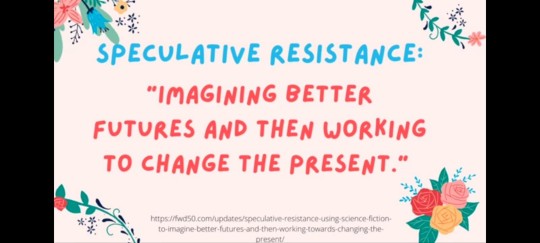
#hopepunk#hope punk#solar punk#solarpunk#futurism#clean energy#renewable energy#misinformation#nihilsm#nihilizm#climate and environment#climate hope#climate chaos#climate action#climate change#climate doom#doomerism
44 notes
·
View notes
Text
I love being a nihilist. Nothing matters!!!! There is literally NO point in living. Do whatever the FUCK you want!!! Be a little goofy!!! Be a little silly!!! it does not matter at all to me. Once I stoped caring my skin got more clear.
17 notes
·
View notes
Text
Schopenhauer ha estudiado el pesimismo; pero Hamlet es quien lo inventó. El mundo se ha vuelto triste porque, en el pasado, una marioneta fue melancólica. El nihilista, ese extraño mártir que no tiene fe, que va a la hoguera sin entusiasmo y muere por lo que no cree, es un producto puramente literario. Fue inventado por Turguénev y completado por Dostoievski. Que Robespierre salió de las páginas de Rousseau es tan cierto como que el Palacio del Pueblo se levantó sobre los restos de una novela. La literatura se adelanta siempre a la Vida. No la copia, sino que la modela a su antojo. El siglo diecinueve, tal como lo conocemos, es en absoluto una invención de Balzac.
Oscar Wilde.
La decadencia de la mentira.
#oscar wilde#escritos#reflexión#frases#escritor#libros#cuentos#citas en español#filosofía#filósofo#libros filosofía#literary#literatura#literature#spanish#spanish quotes#nihilism#nihilsm#nihilismo#nihilist#pesimismo#pesimista#honore de balzac#arthur schopenhauer#schopenhauer#dostoievski#dostoevsky quotes#dostoyevski#hamlet#shakespeare
11 notes
·
View notes
